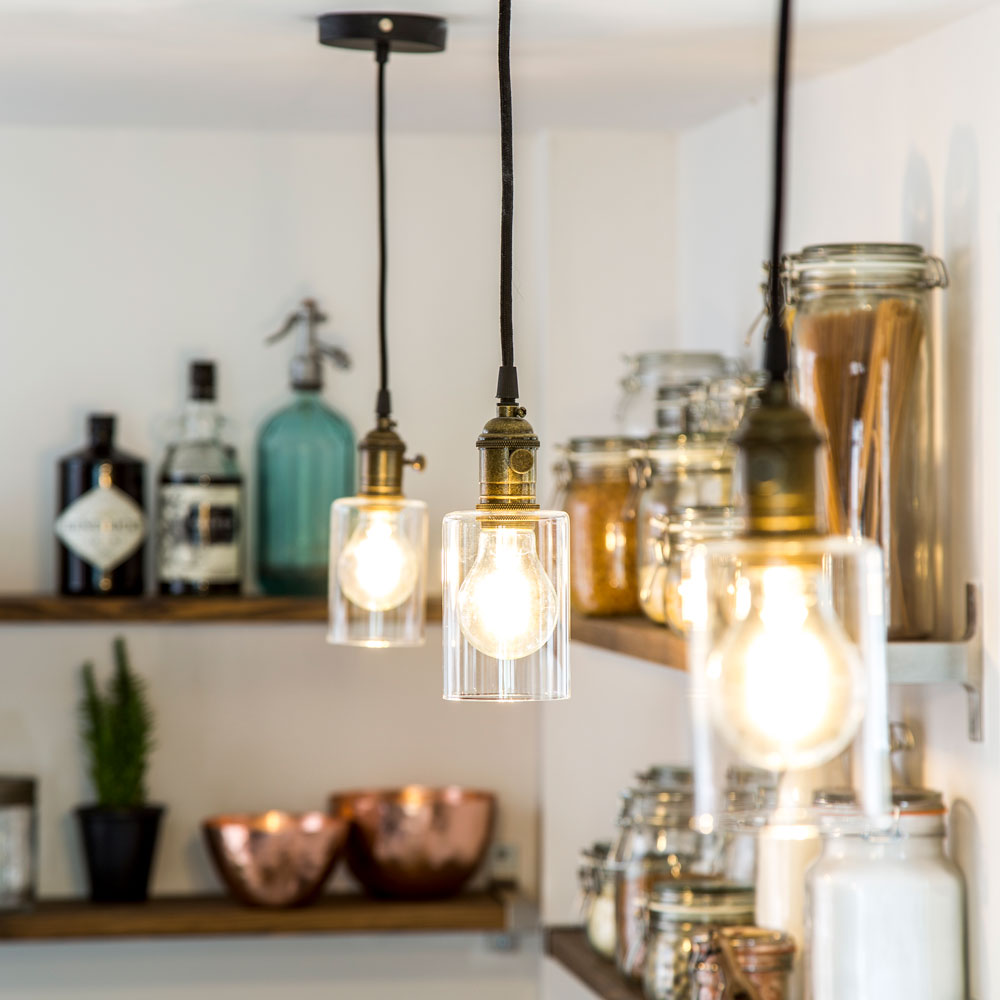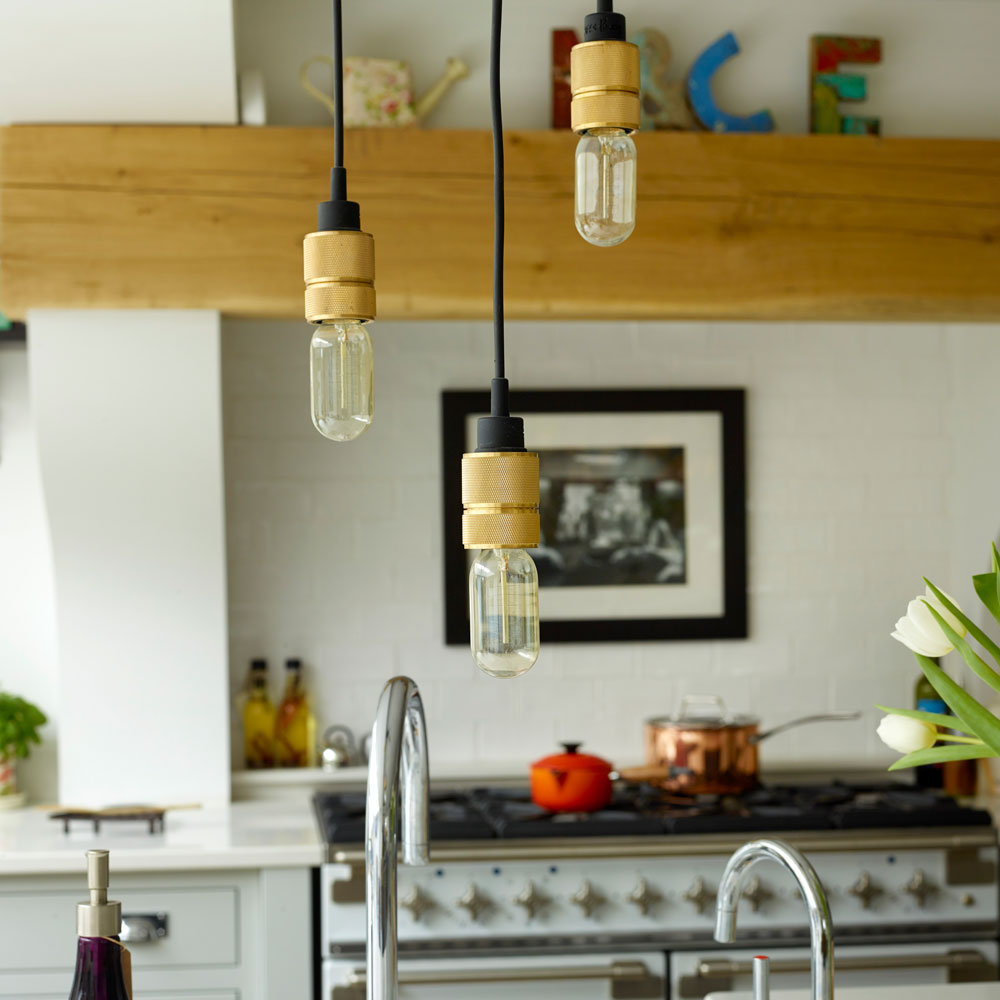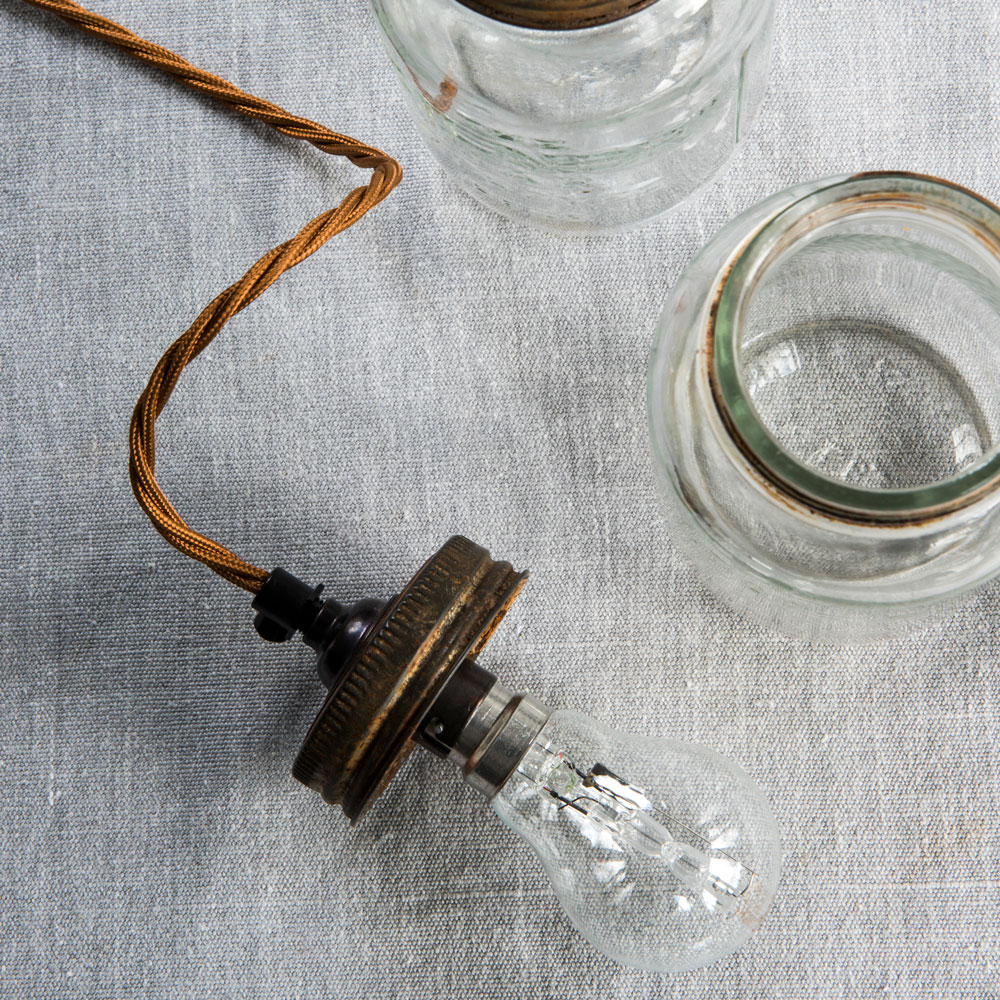Which lightbulbs are being banned in the UK? Everything we know about the halogen lightbulb ban
The phasing out of halogen bulbs will cut emissions

The UK government has today announced that the sales of halogen bulbs will be banned from September 1st, 2021. The halogen lightbulb ban is part of tighter energy efficiency standards for electrical appliances to help tackle climate change.
Living room lighting ideas – improve the light and set the right mood for relaxing
Halogen bulbs are much like old-fashioned incandescent bulbs, but they contain a small amount of halogen gas. They emit a warm and soft light as soon as they're turned on and they can be used on a dimmer switch.

However, they have a far shorter lifespan than LED bulbs, while using 80% more energy. The ban means retailers will no longer be able to sell the majority of halogen bulbs for general household use in the UK from September 1st.
'We’re phasing out old inefficient halogen bulbs for good, so we can move more quickly to longer lasting LED bulbs, meaning less waste and a brighter and cleaner future for the UK,' said Energy Minister, Anne-Marie Trevelyan.
'By helping ensure electrical appliances use less energy but perform just as well, we’re saving households money on their bills and helping tackle climate change.'

The ban is set to cut carbon emissions by 1.26 million tonnes a year. This is equivalent to taking 500,000 cars off the road. According to the government website, the law will help save British consumers £75 a year on their energy bills.
Sign up to our newsletter for style inspiration, real homes, project and garden advice and shopping know-how
We shared ways to save money on energy bills in lockdown - much still applies as we continue working from home.
From September, the sale of lighting fixtures with fixed bulbs that can’t be replaced will also be banned. The hope is that fixtures won't then have to be thrown away when a bulb goes, and can instead be replaced.

Energy efficiency ratings are also changing to a scale from A to G, rather than having things like A++, A+++, to make things simpler for consumers.
Related: Bedroom lighting ideas to create a restful retreat and peaceful ambience
LED light bulbs now account for around 60% of all lightbulbs sold in the UK. This figure is set to grow to around 85%.
In March, we reported on the right to repair law. This makes it a legal requirement for white goods manufacturers to sell spare parts, so more household items can be fixed at home.
This step is part of a package of measures to reduce emissions and save us money on energy.

Millie Hurst was Senior Content Editor at Ideal Home from 2020-2022, and is now Section Editor at Homes & Gardens. Before stepping into the world of interiors, she worked as a Senior SEO Editor for News UK in both London and New York. You can usually find her looking up trending terms and finding real-life budget makeovers our readers love. Millie came up with the website's daily dupes article which gives readers ways to curate a stylish home for less.